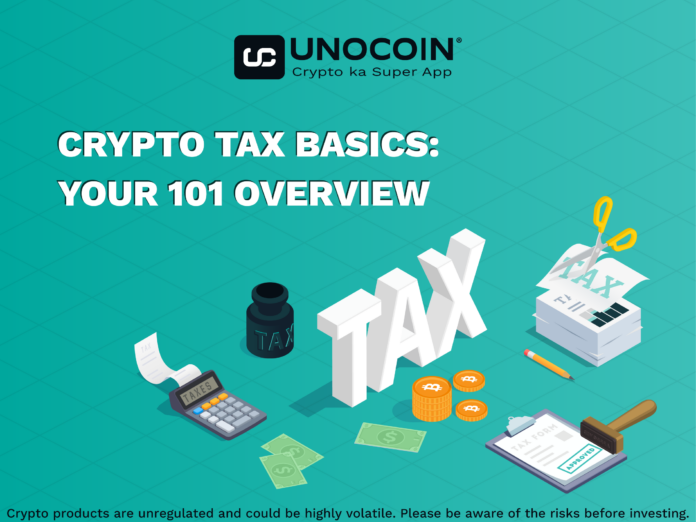The Complex Landscape of Cryptocurrencies and NFT Taxation in India
In the ever-evolving world of cryptocurrencies and non-fungible tokens (NFTs), India finds itself in a state of regulatory ambiguity. While the Reserve Bank of India (RBI) once wanted to ban cryptocurrencies in 2018, the Supreme Court overturned the ban, leaving these digital assets in a legal gray area. While NFTs are not subject to the same level of regulatory oversight, they are not entirely clear of the legal uncertainty surrounding cryptocurrencies.
1. Regulatory ambiguity and tax challenges
Cryptocurrencies and NFTs exist in legal limbo in India. The government’s stance on these digital assets remains unclear, despite reports of a comprehensive cryptocurrency bill in the works. Meanwhile, a new tax regime has been introduced that aims to tax profits and income from virtual digital assets (VDA), including cryptocurrencies and potentially NFTs. However, the legal status of cryptocurrencies and NFTs remains unclear.
2. Taxation of Virtual Digital Assets (VDA)
The Income Tax Act has been amended from 1 April 2022 to address VDA taxation, which includes:
Cryptocurrencies:
With the exception of Indian or foreign currencies, this category covers any digital representation of value created by cryptographic means that provides a digital representation of value that can be exchanged with or without payment. It can serve as a store of value, a unit of account or be used in financial transactions.
NFTs or similar tokens:
The government has not yet specified which NFTs or tokens will fall into this category.
Other Digital Assets:
The government may notify other digital assets to be included in this tax regime.
Surprisingly, the Income Tax Act does not mention terms like blockchain or distributed ledger technology (DLT) in its definition of VDA. The vagueness of these definitions raises questions about the taxation process.
3. Tax issues and concerns
VDA taxation brought several problems and issues:
Determining Fair Market Value:
Calculating the fair market value of VDAs, especially if they are received without consideration or for less than market value, can be challenging. Cryptocurrencies and NFTs are highly volatile and their values fluctuate regularly. The absence of specific guidance for VDA under the Income Tax Rules further complicates the matter.
Acquisition costs:
Deduction of expenses incurred in cryptocurrency mining is not allowed. Similarly, it is unclear whether the costs associated with NFT mining will be treated similarly. This ambiguity in deductions can lead to disputes with tax authorities.
No set-off of losses:
The Income Tax Act prohibits the set-off of losses from VDAs against gains from other VDAs, unlike most other assets in India. This means that losses from one VDA transaction cannot be used to offset gains from another, presenting unique challenges for taxpayers.
Tax Deducted at Source (TDS):
The law requires 1% TDS on consideration for remittance of VDA. This obligation applies regardless of whether the consideration is in cash or through other VDAs. It can also be stored with a blockchain owner that facilitates NFT trading.
International perspectives on VDA taxation
While India struggles with VDA taxation, other countries have adopted different approaches:
United States:
Cryptocurrencies are considered property and subject to capital gains tax. Fair market value is determined by the trading price at the time of the transaction.
Canada and the United Kingdom:
These countries classify cryptocurrencies differently (commodities and capital assets), leading to potential income and capital gains taxes based on the circumstances of the transaction.
Taxation of NFTs:
Most developed countries, except Malta, treat NFTs similarly to cryptocurrencies. Malta has introduced a framework for digital ledger technology assets, taxation of coins such as fiat currencies and collection of income tax on revenue from financial tokens.
What should investors do?
Due to the evolving nature of VDA regulation in India, residents wishing to invest or trade in VDAs need to familiarize themselves with the new tax regime. It is recommended to consult a tax advisor before starting such activities. Using exchanges or marketplaces for transactions can help determine the fair market value of VDAs, especially in the absence of government guidance.
Investors should be aware that losses cannot be offset against gains from other VDAs and capital expenditures such as cryptocurrency mining or NFT minting are not deductible. In addition, those involved in non-financial transactions must remain vigilant and monitor government measures to determine whether their non-financial transactions fall under the purview of the Income Tax Act.
Conclusion:
In conclusion, VDA taxation in India presents a myriad of challenges and uncertainties. The legal classification of cryptocurrencies and NFTs remains a matter of debate, while the tax regime aims to discourage investment in these assets. As India navigates this complex terrain, investors must remain informed, and cautious and adapt to the evolving regulatory environment.
Please find the list of authentic Unocoin accounts for all your queries below:
- YouTube Channel: https://www.youtube.com/c/Unocoin/videos
- Newsletter: https://medium.com/subscribe/@Unocoin_growth
- Blogs: https://blog.unocoin.com
- Instagram: https://www.instagram.com/unocoin/
- Twitter: https://twitter.com/Unocoin
- Facebook: https://www.facebook.com/unocoin/
- LinkedIn: https://in.linkedin.com/company/unocoin
- Telegram Group: https://t.me/Unocoin_Group
- Telegram Channel: https://t.me/+fasQhTKBsfA5N2Zl
- Telegram: https://t.me/UnocoinSupport_Bot
- E-mail id: [email protected]
- Contact details: 7788978910 (09:30 AM IST – 06:30 PM, Mon – Sat)
- App store link: https://apps.apple.com/us/app/unocoin/id1030422972?ls=1
- Playstore link: https://play.google.com/store/apps/details?id=com.unocoin.unocoinwallet
Disclaimer: Crypto products are unregulated as of this date in India. They could be highly volatile. At Unocoin, we understand that there is a need to protect consumer interests as this form of trading and investment has risks that consumers may not be aware of. To ensure that consumers who deal in crypto products are not misled, they are advised to DYOR (Do Your Own Research).




